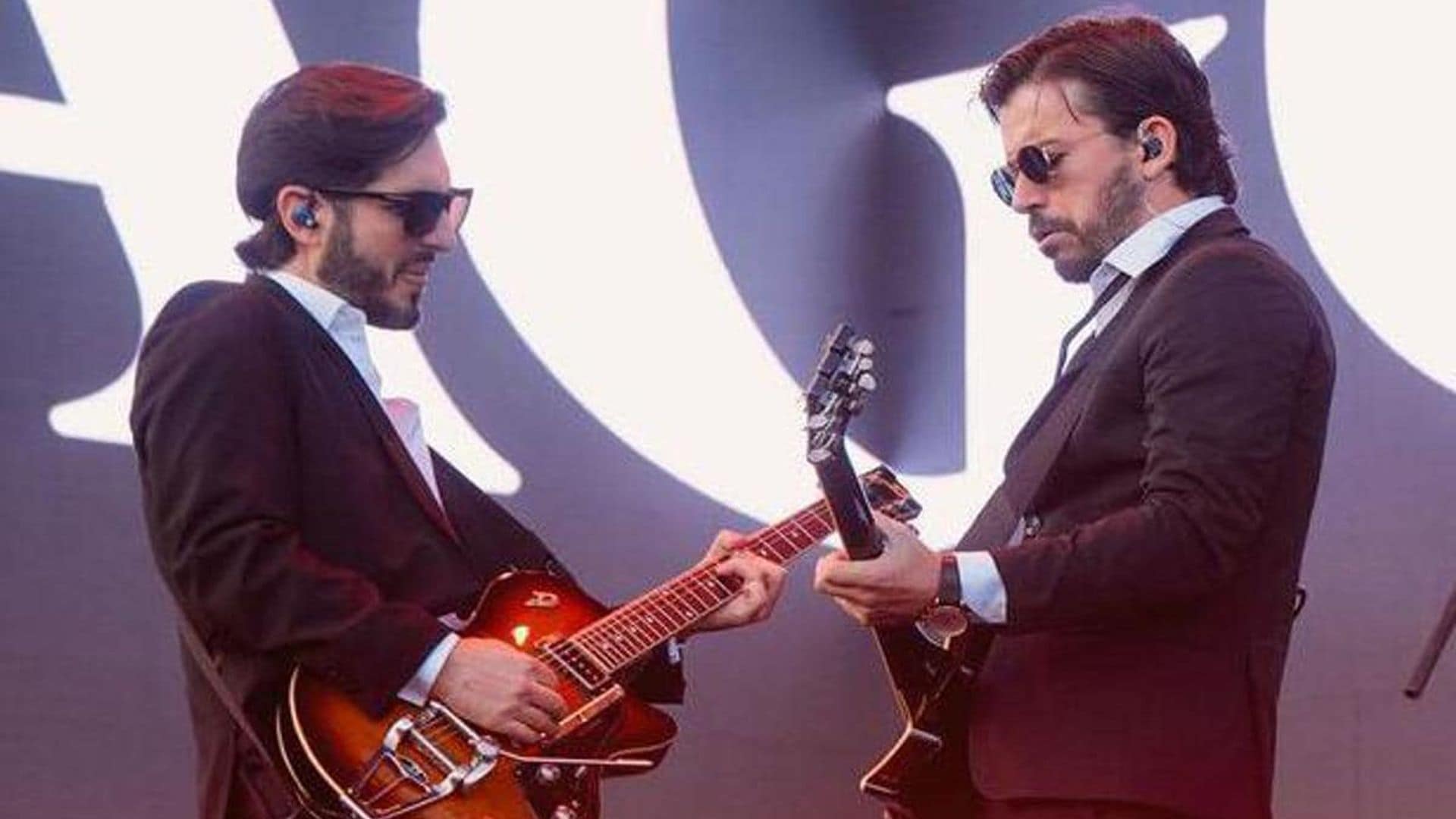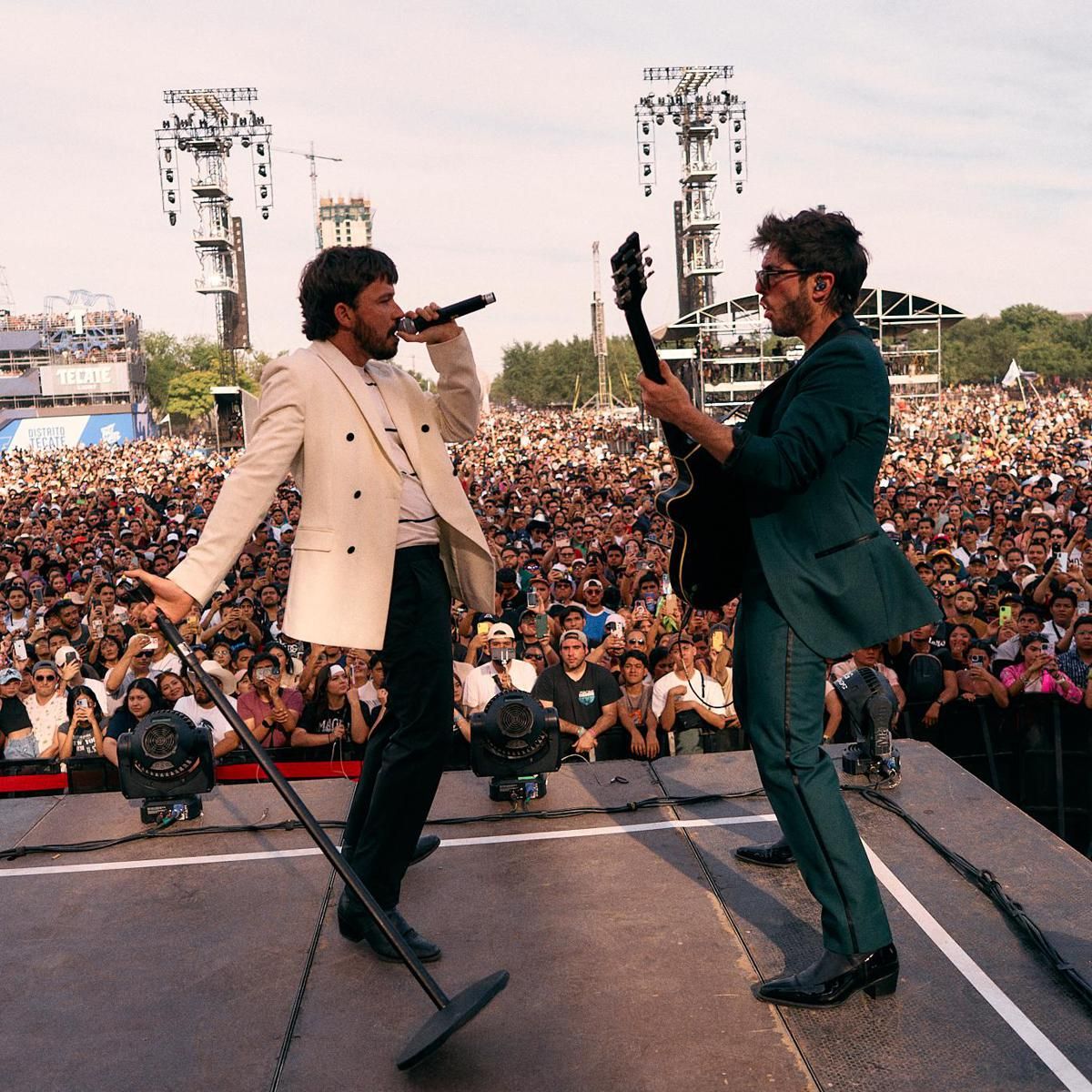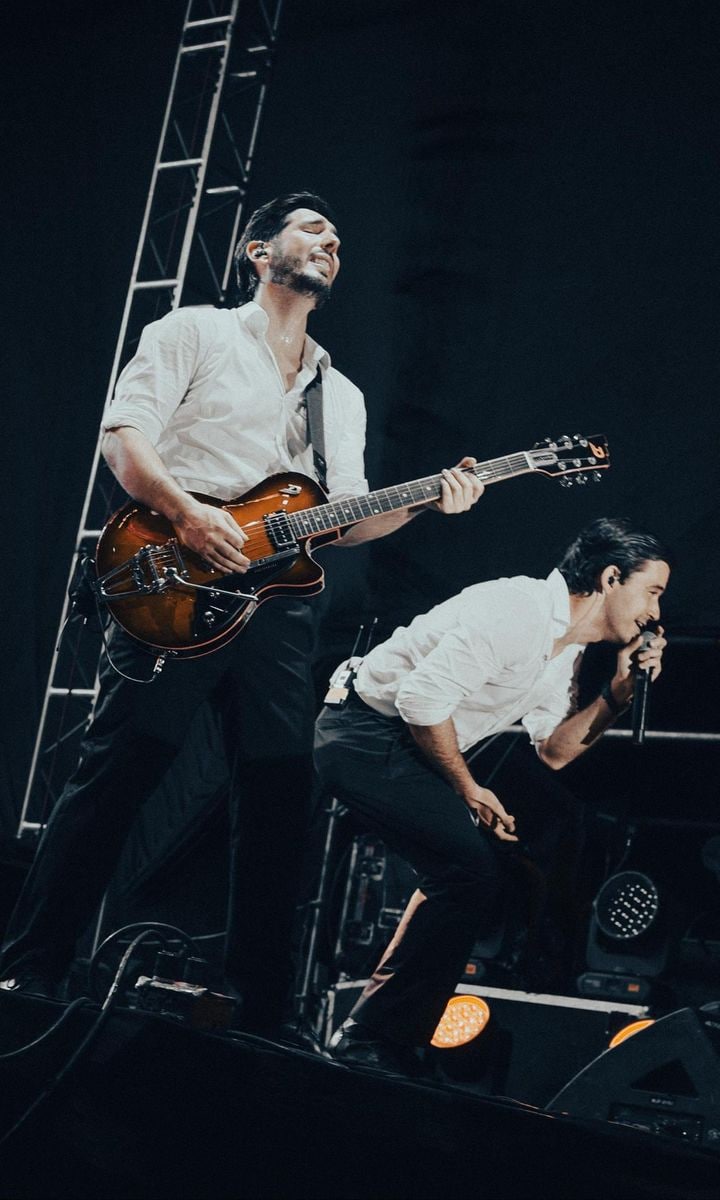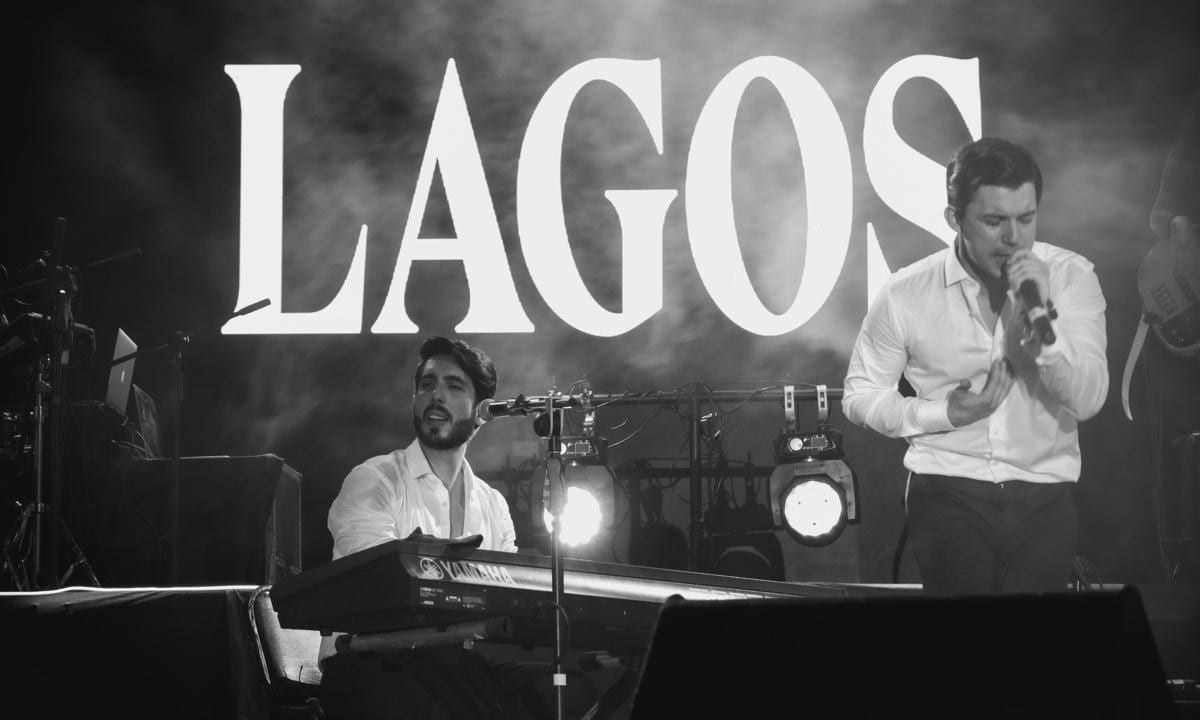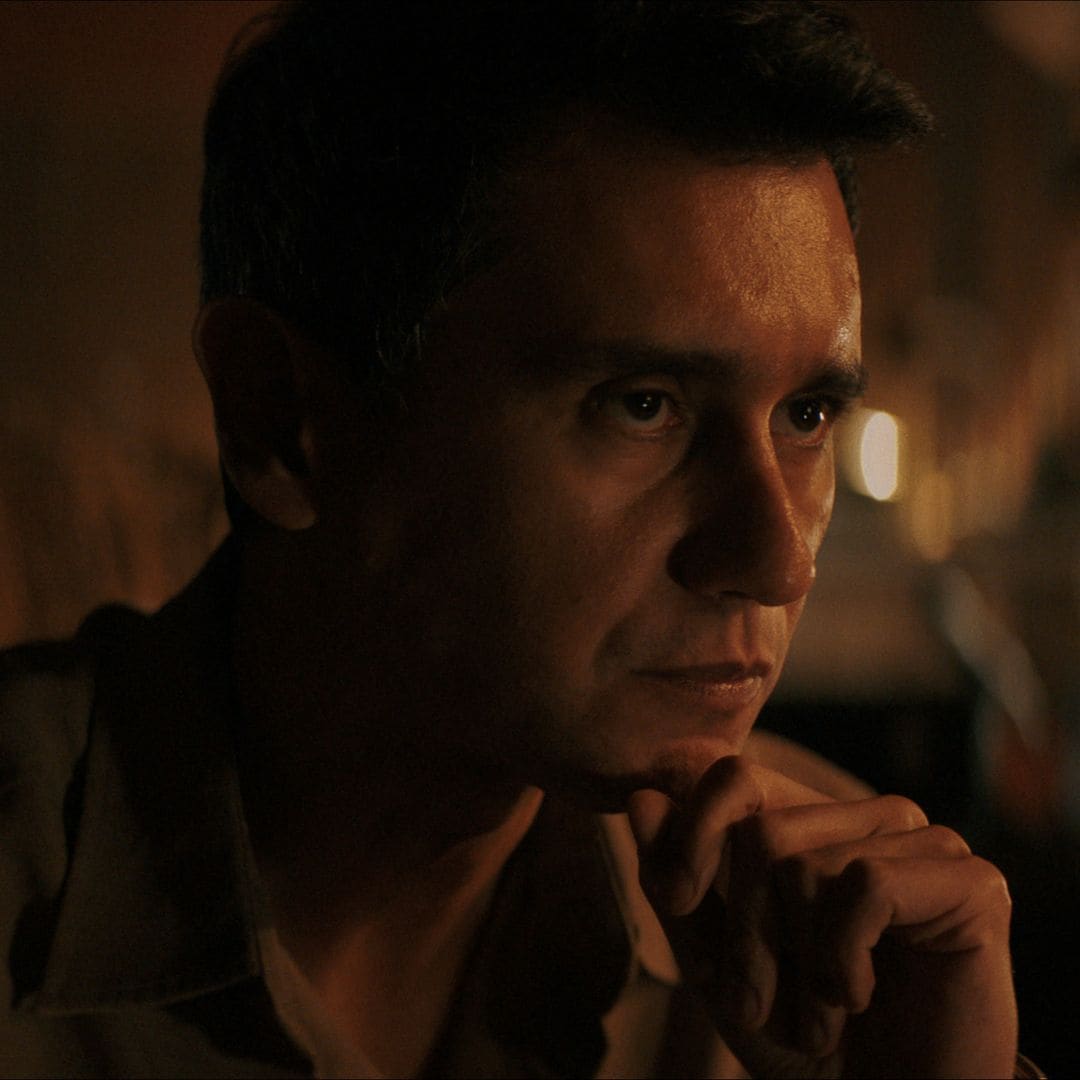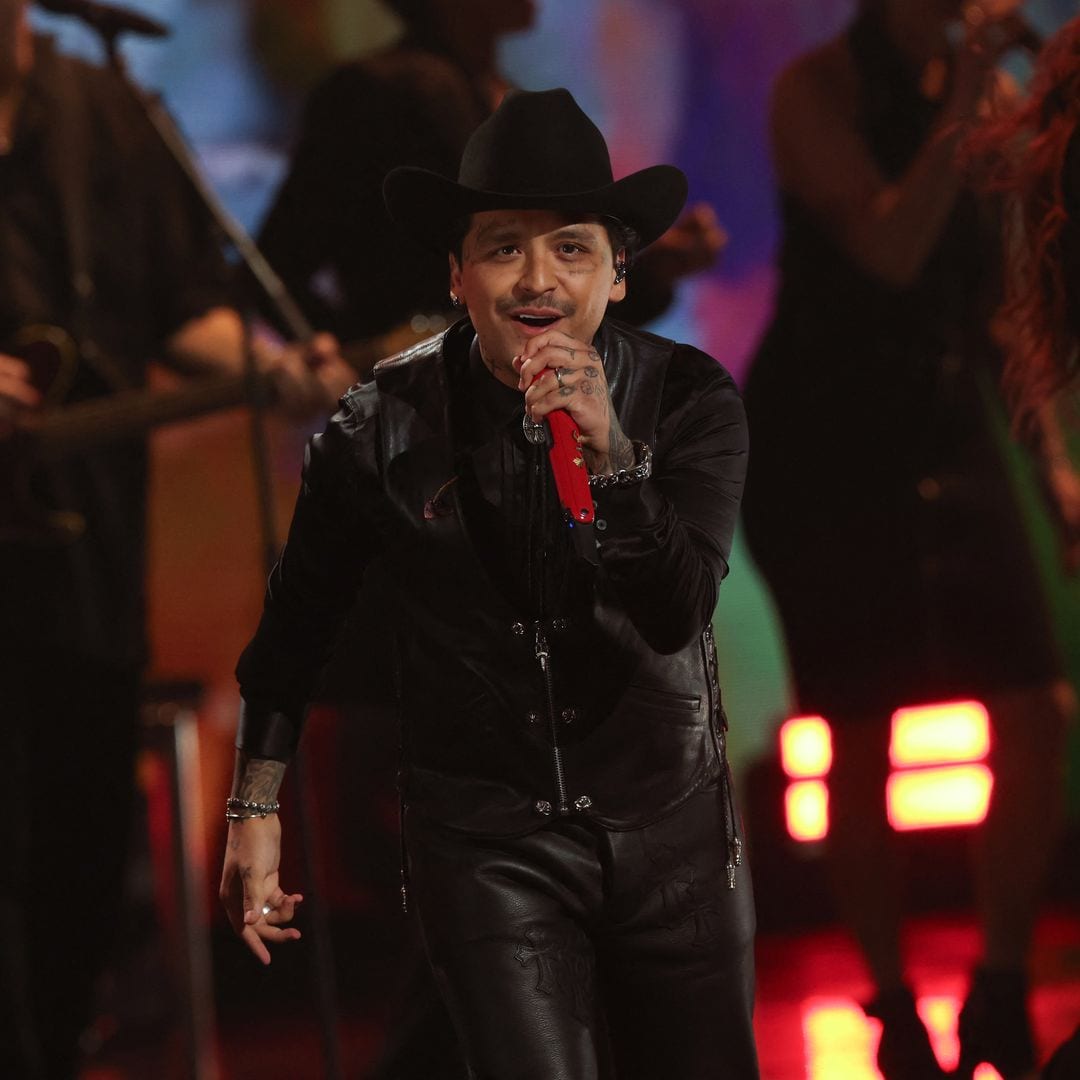Hailing from Venezuela, Agustín Zubillaga and Luis Jiménez were already renowned musicians and producers when they came together in 2019 to form the band, LAGOS. The duo has had a string of viral hits, millions of monthly listeners, and received their first Latin GRAMMY at the 24th annual awards ceremony for ‘Best Pop Rock Song’ as songwriters of “Ojos Marrones” by Lasso. But now that they’re taking over Latin pop, they’re finding themselves running out of minutes in the day, stepping back from songwriting (except for a few friends), and putting their all into their passion project.
LAGOS has been booked and busy, and has performed sold-out shows in Argentina, Chile, Colombia, Venezuela, Guatemala, the United States, and Mexico. But life is about to get even crazier now that they’ve released their second album “Alta Fidelidad.” The duo will soon take the body of work on the road for their “Alta Fidelidad Tour 2024” kicking off in Mexico City on August 23rd, before hitting Spain, and the United States and Latin America in the fall.
Written and produced by Agustín and Luis, the musical experience delves into the journey of romantic relationships, exploring everything from the initial infatuation phase to the complexities, fragility, and uncertain future that couples often face. The album includes collaborations like “No Se Acaba Hasta Que Acabe” with REIK, and “Blanco y Negro” featuring Elena Rose.
HOLA! USA had the opportunity to talk to LAGOS via Zoom while they were in Spain for their headlining shows, where we spoke to the duo about how LAGOS started, where they got their name from, and more. “Go listen, we love this album. I think it’s the summary of the lessons we learned about the importance of being true to yourself, and doing what you love, and not doing what you think that people will love about you,” Jiménez told us. Check out the interview below. *This interview has been condensed and edited for clarity.*
So you just announced the Spain run of your tour, how does it feel?
Agustín Zubillaga: I mean, it’s our first time here. So it’s super exciting when you come to a place to do your own show for the first time. And yeah, it’s kind of surreal that a few years ago we were just coming here to be an opening act for a friend, Danny Ocean. And now we’re headlining our own show in Barcelona and Madrid. It’s just, for me, it’s hard to believe that we’ve come so far in such a short amount of time. T his is gonna be amazing and we’re so proud of this album and so proud of the show that we’re preparing for this album. It’s gonna be iconic. Something that people will remember.
The album is amazing. I just listened to the full thing. It’s such a perfectly condensed body of work that pulls from many different genres. It’s very smart, which I think comes with your experience as producer. Take me through a normal day in the studio with you two.
Luis Jiménez: First of all, I love the adjective you just used, ‘smart,’ because actually a day in the studio with us, it’s a lot of thinking, maybe overthinking. We actually have one song called “Sobre Pensandote,” I think it describes our personality. But yeah, we are pretty methodical. We think a lot, we feel and we have the muse and inspiration part, but we are pretty methodical. We start the songs without playing a single note. We actually do it like we are doing the story of a movie. We first start speaking about what topic we wanna talk about, then we look for a title. We start from the title and then we find an angle to tell the story with that title. And then we start playing the first beat, the first music. We give a lot of priority to the story, to the lyrics. We see it a lot from a songwriter’s point of view first, and then we start to produce. And then we have fun when we do the easy part. For us, we start with the hard part.
When do you know that a song is finished? Is there ever a time when you’re like, “Well, maybe what if we tried this?” and then the other one has to compromise? Or do you feel like you’re just perfectly in sync?
Agustín Zubillaga: That is actually a struggle. We do struggle with being perfectionists. More so Luis than me, I think Luis is very much a perfectionist. And so sometimes we just have to commit to something and say, “OK, this is as good as we can get it with the time that we have.” We could tweak it eternally forever and get it absolutely perfect, but we’re never gonna release it because we’re gonna run out of time. So eventually we just have to make a decision and say, “OK, we could continue tweaking it, but as is, it’s good enough.” Not good enough in the sense of mediocrity, it’s just good enough in the sense that we have to deliver it, we have to finish it. And if we stay in this perfectionism for too long, we’re never gonna finish. So we just have to make a decision and commit.
Take me back to 2019 when LAGOS was formed. How did you two come together to become LAGOS?
Agustín Zubillaga: Well, Luis and I knew each other from Venezuela back in the day because Luis has another band called Los Mesoneros, which is a rock band. I worked with them a couple of times, but then Luis started his songwriting journey as a professional songwriter besides his rock band. He heard some stuff that I was working on in 2016 or 2017. We have the same editor, Sony Music Publishing. And we started writing, we started co-writing for other people to pitch to artists. But since day one, we just clicked, we just felt this synergy. I don’t know, it’s like when you can tell when somebody thinks in a very similar way, even though we have very different tastes because he’s more of a rock guy and I’m more of a pop and Latin urban guy. There’s something about our mindsets when approaching music that is very similar and I think that’s what clicked for us. We started writing more and more and got very successful at pitching songs and getting our songs recorded. But then what started happening is that people in labels and friends, artists, started hearing our demos and saying, “This sounds ready to release, why don’t you just put a name on this, make a band or a group, whatever, and just release these songs?” At first, we were kind of skeptical because Luis didn’t have a lot of time to spare with his other project. We were kind of afraid that this was gonna become unmanageable, which it has become unmanageable. It has become crazy. But they eventually convinced us to do it, and I’m so glad that we did even though Luis is suffering a little bit. But I’m glad that we did because it has brought us so many good things.
Where did the name come from? How did you guys choose LAGOS?
Agustín Zubillaga: It was a very uninspired idea from a friend of ours - our editor. He suggested that we just mix the names: “L” Luis and “Agus” from Agustín and so “Lagus” but we didn’t like it at all. But then a friend of ours said, “Why don’t you change the U for an O?” So it’s like LAGOS like the city in Nigeria. It’s also how we say Lakes in Spanish. So we thought it was a nice word that was kind of neutral. We thought we could appropriate the word and infuse the word’s meaning with the music.
I like that it still has a connection to your names too. That’s really cool. Another thing that stands out about your performances and vibe is your fashion. You are both very fashionable. How did you come up with your look - your vibe? It’s obviously calculated because it’s too perfect.
Luis Jiménez: Thank you. When we started this project, it started in a context where a lot of pop in Spanish was super reggaeton, urban-influenced, or dominated. We are not that kind of guy. So we said if we’re doing this project and we’re doing a pop project in Spanish, we have to do something else and we have to be ourselves. We were with our creative director and started developing this idea of a very classic, timeless vibe, very elegant. We feel it represents us and it’s actually very rare to see in Spanish right now. Like everything is more like neon and tattoos and chains and, that kind of stuff, it’s ok but it’s not us. So we did this concept and we think it represents us.
Do you have a song that you produced for someone that you wish you had kept for yourselves?
Luis Jiménez: Hm. Maybe a few. The thing is, when we write for other artists, we book it. So if we do the session for that person, whatever we make in that moment, is destined for that artist, and we do it with all the love like it’s our baby. We don’t say, “Oh, it’s for another artist, we’re not gonna give our best.” We actually give our 100% because we’re perfectionists freaks. But yeah, there are some songs when we finish the session, we say, “Oh, I love this song.” Sometimes we kind of envy it, but we are very happy and we do it with love, wishing the best for those songs. Of course, we did songs like “Ojos Marron” for Lasso, our friend, and we won the Latin Grammy for it. But we always see it as a team. We’re super happy that those songs get to the right artists and the right fans, and we celebrate it either way.
I’d like to know your favorite memory that you’ve each had with each other.
Luis Jiménez: A few months ago, when we won our first Latin Grammy, that was something that I dreamed of since I was a kid. Celebrating that moment with Agustin and also with Lasso, one of our closest friends, was unforgettable. There was also one day when we were told that “Monaco,” the focus track of our first album, was going viral. We already knew the song was getting very big, very fast. But when they told us that “Monaco” was entering Viva Latino, one of the biggest playlists, it was special. At that moment, the playlist was dominated by reggaeton and urbano. When we were deciding on that single, we were scared because it had nothing to do with what was happening in that context. But we trusted the song, we trusted our feelings, and the song got in. It was a very big lesson for us and a special moment. We had a toast that day. I think it actually changed our lives.
Agustín Zubillaga: Yeah the Latin Grammy moment was very special because it was our first Latin Grammy for the three of us, and we were close friends. Lasso and Luis used to be roommates. We were all holding on to each other, hugging each other, waiting for the announcement. When they said our names, we just jumped out of our chairs and started screaming. It was really nice. I actually cried a lot afterward, and Luis was my support, hugging me. It was really sweet. Luis is a really good partner, coworker, and friend.
What would you say you’ve learned from Luis in terms of the way that you work as a musician and a producer?
Agustín Zubillaga: I keep learning stuff every day from him. He’s one of the most talented people I’ve ever met. I worked with a lot of people, and he is just special. We call him “the chosen one” because he’s got this spark, this thing that is just magnetic. He’s so effortlessly talented, and he’s also a very good communicator when working. He’s very good at giving feedback and telling you what he likes and what he doesn’t like. Talent is not enough; you also have to be a good co-writer and collaborator. He’s especially good at collaborating.
Luis Jiménez: Tons and tons of things. I see Agustin not only as a colleague and a friend but also as a master, and a teacher. I have learned so much from him. Working with him has taken me to a whole new level that I didn’t even know was possible. His way of working, perceiving, and analyzing music, and his talent—he has been crucial for me to get to a whole new level as a songwriter, a producer, and as a person. I’m super grateful to him because he’s really talented in many things.
